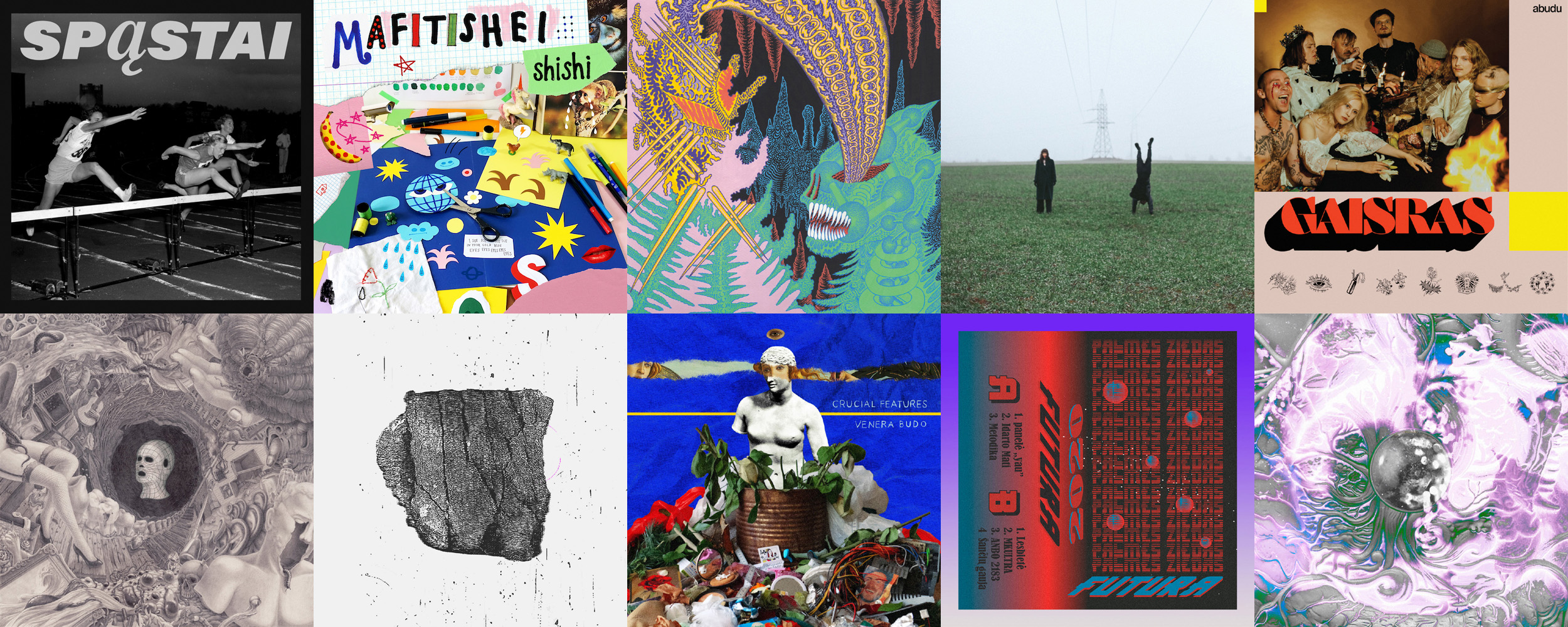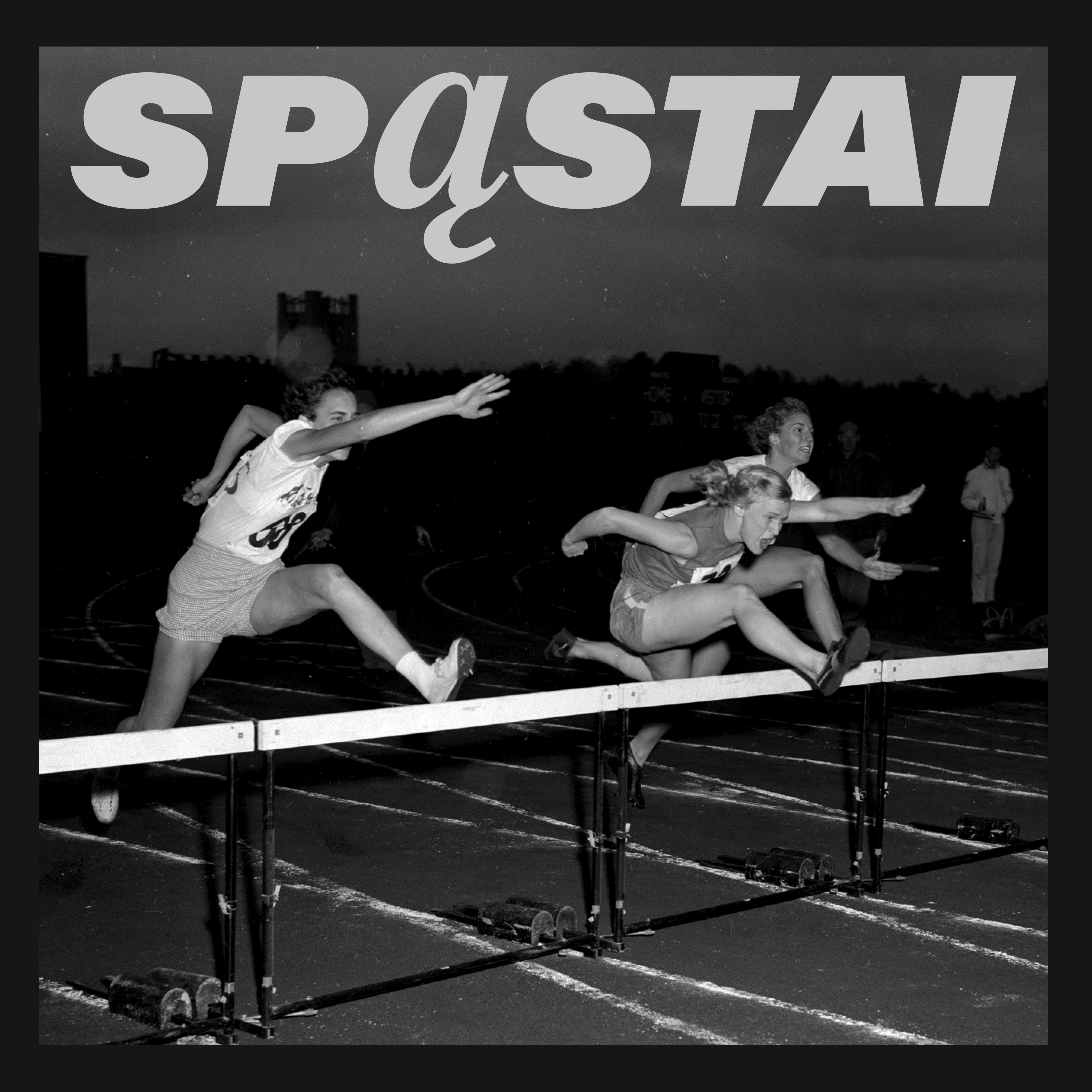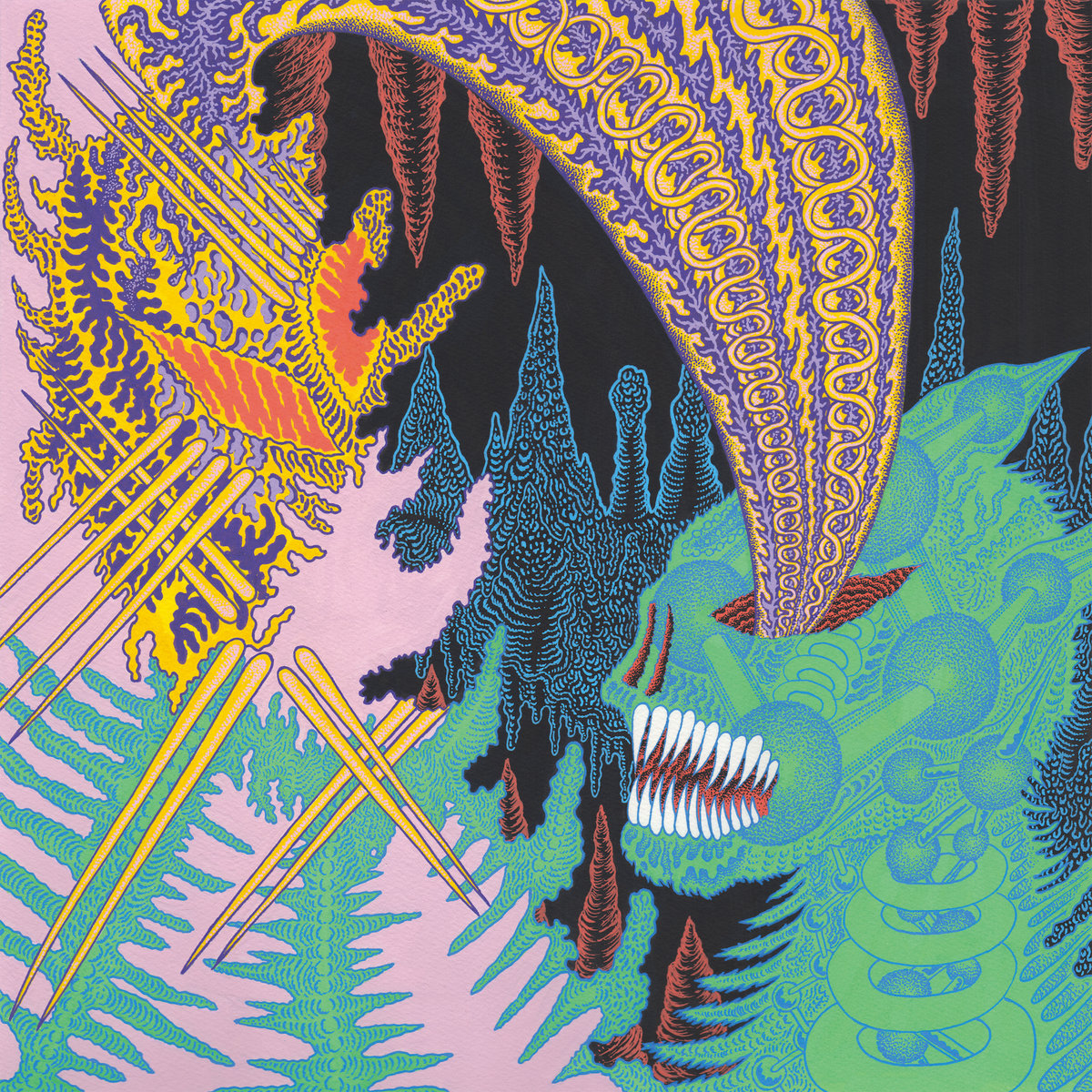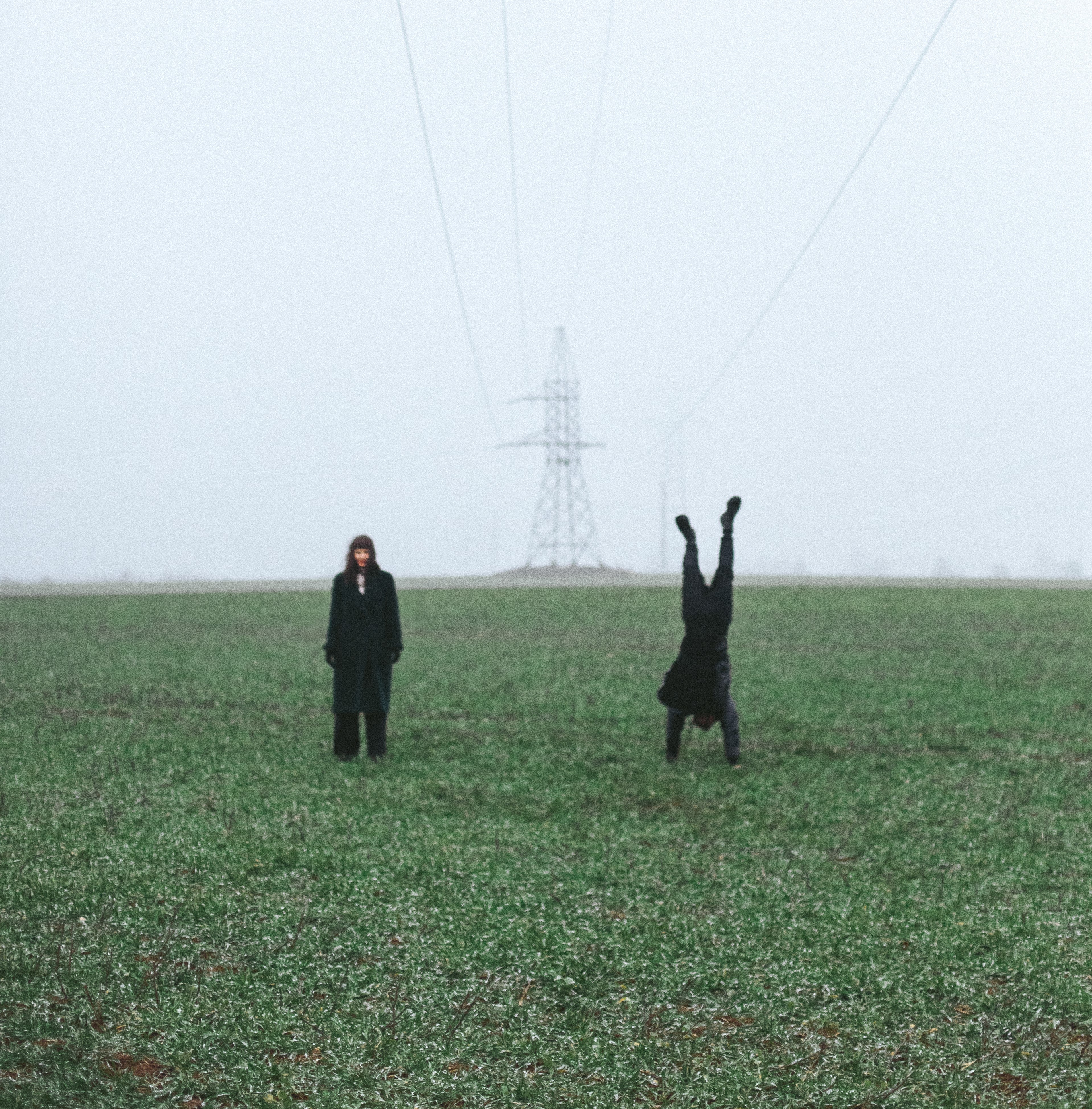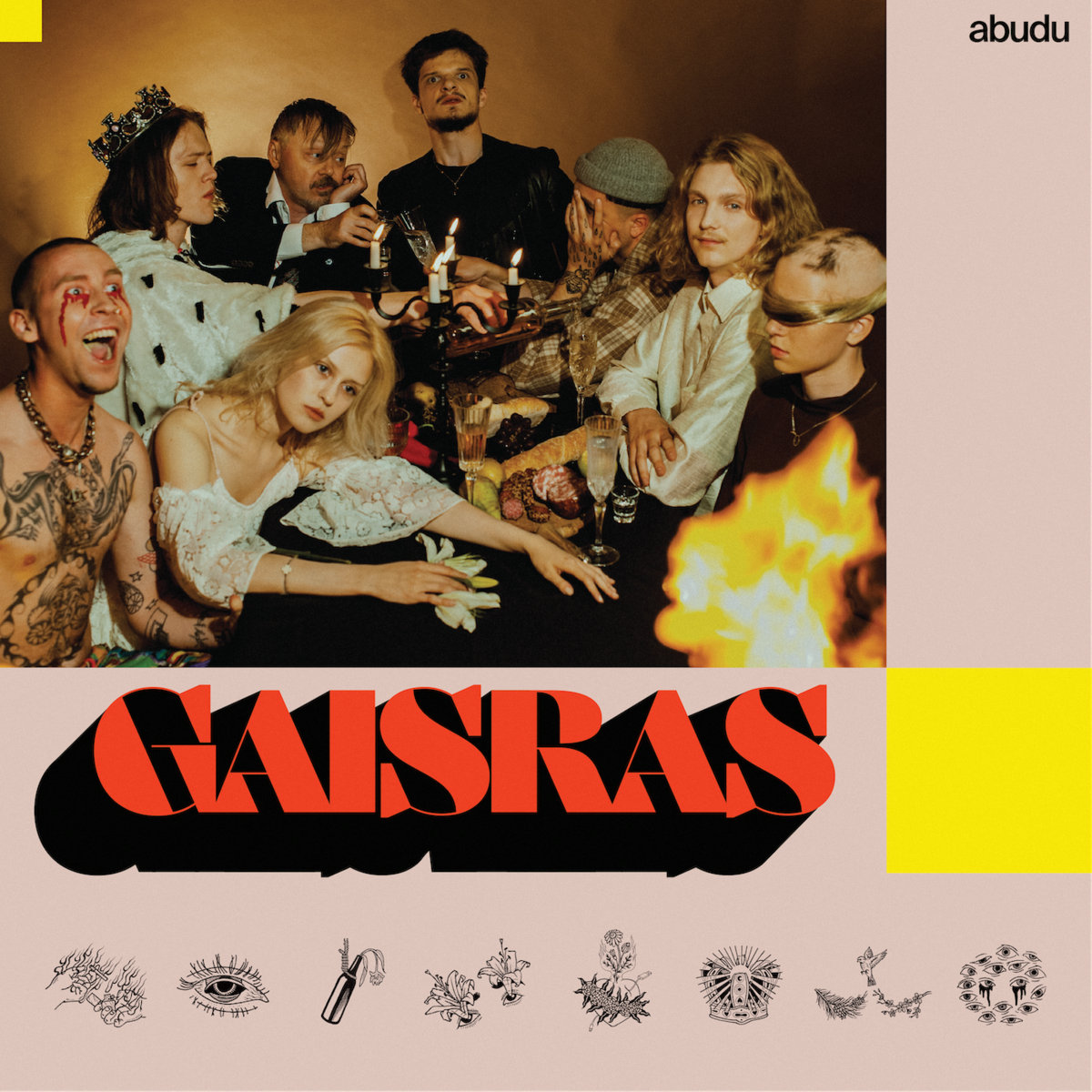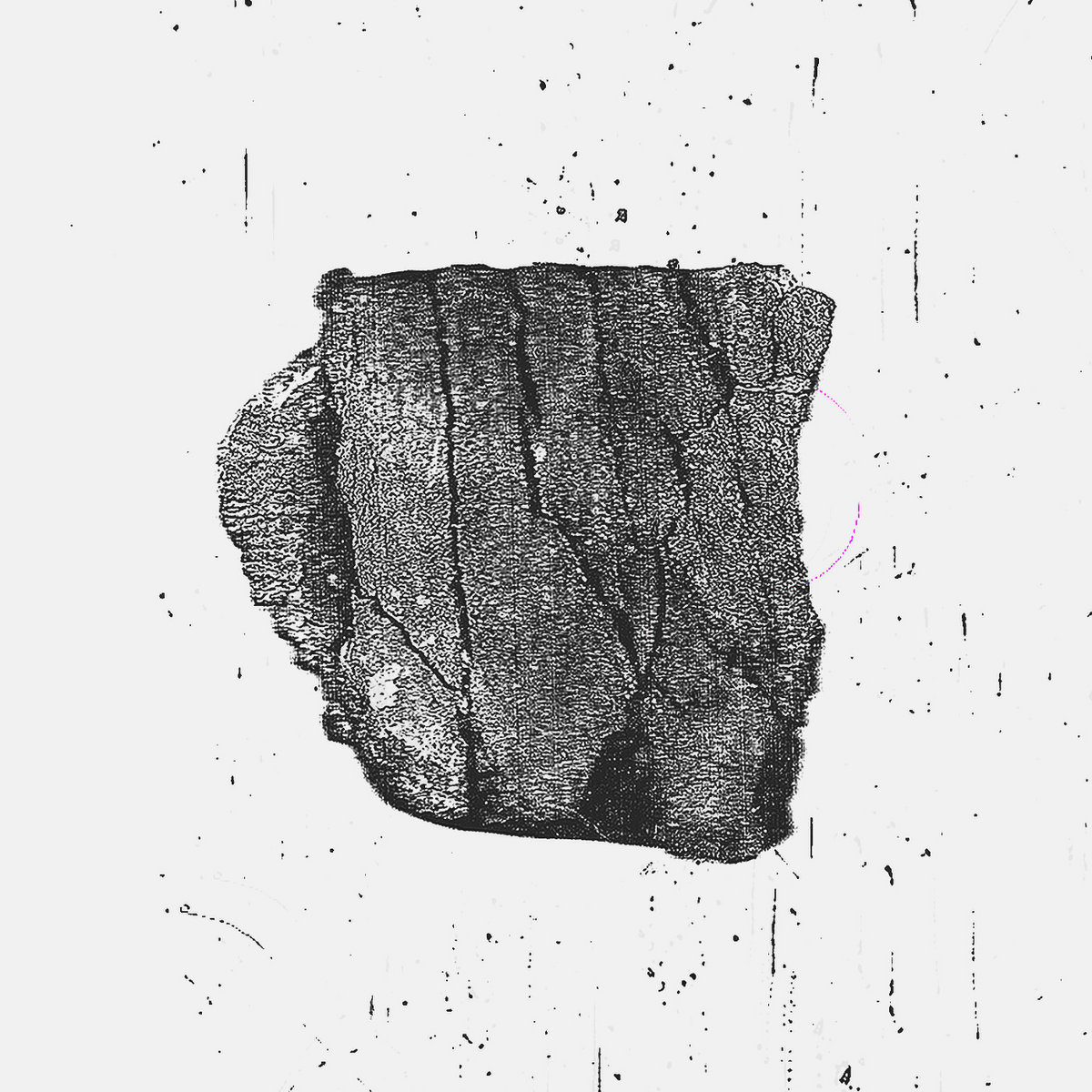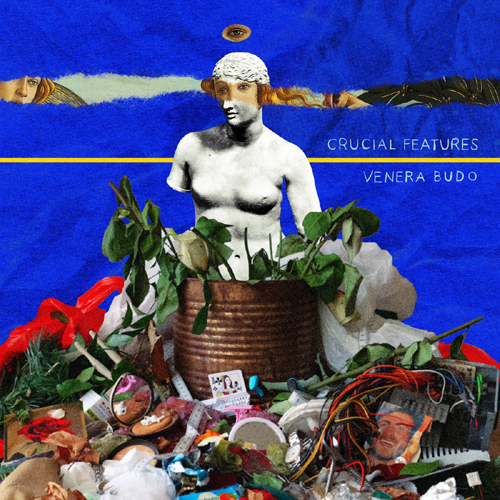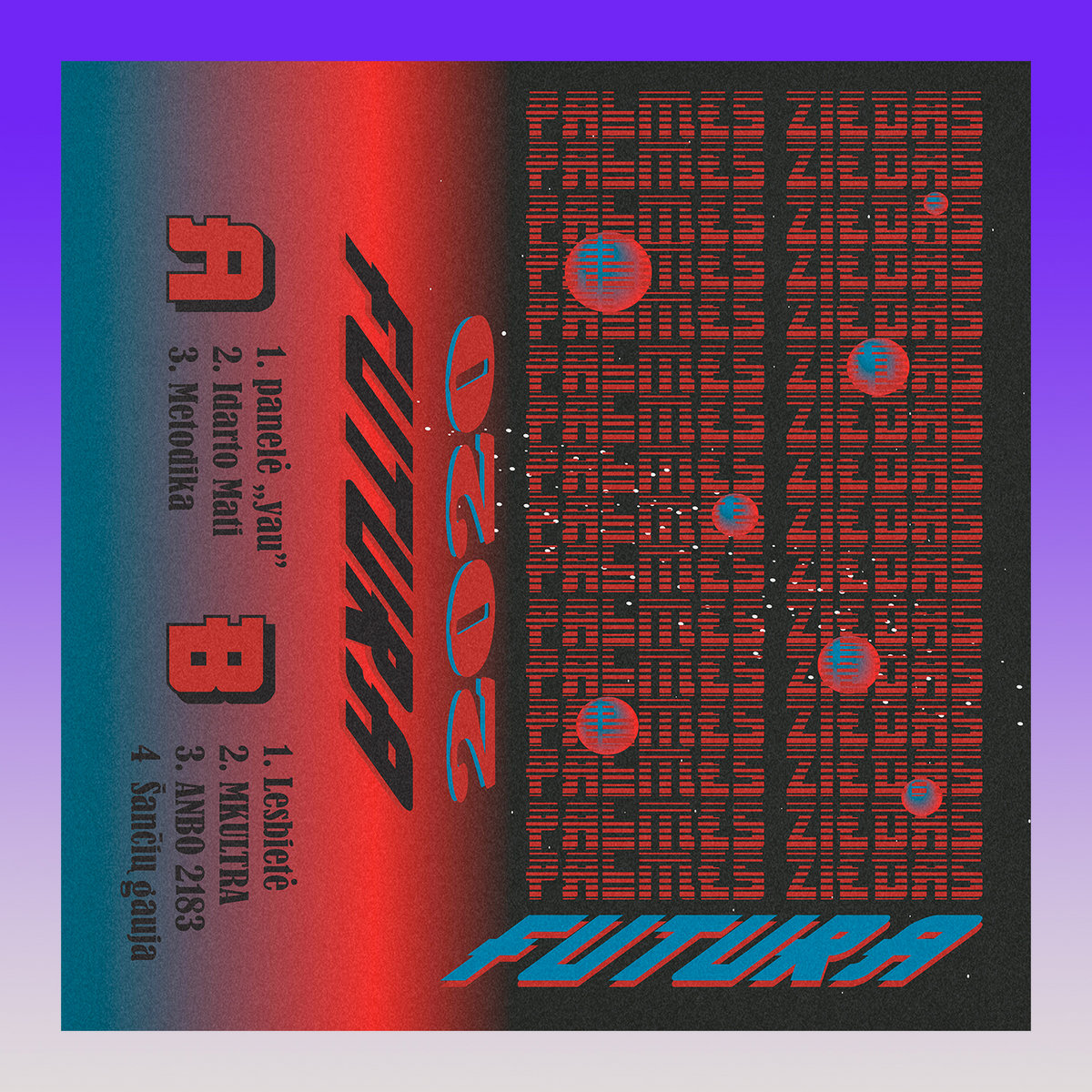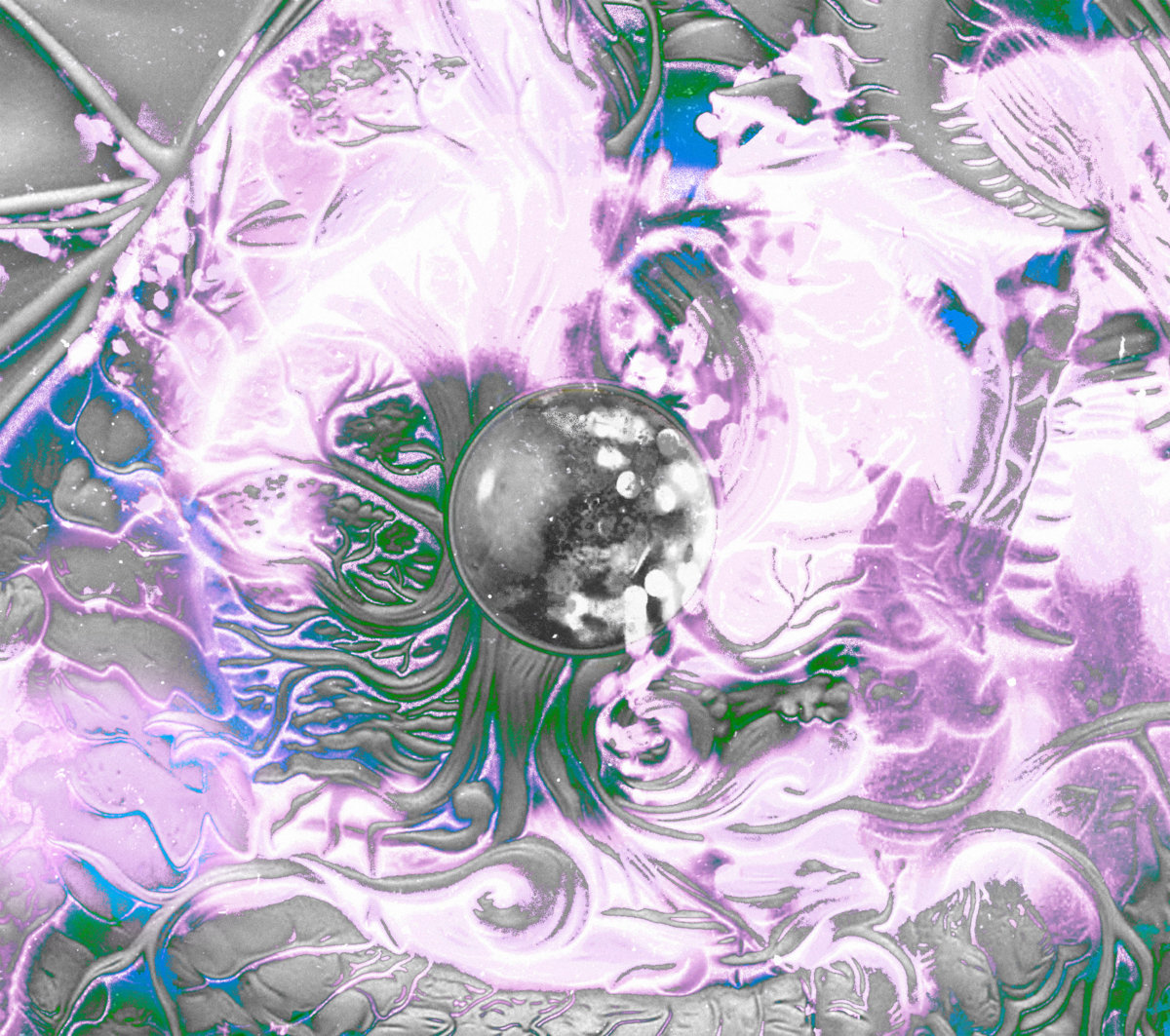Theo TRIANTAFYLLOU | Eavesdropping: An Outsider Reviews Ten Albums of Lithuanian Indie, Underground, and Beyond
When I was commissioned to select and write reviews on recently released albums by Lithuanian acts, I was both intrigued and anxious. Though I have a background in popular musicology and a bottomless appetite for everything new in music, I had no prior knowledge of the local scene and I was struck by the potential research paths for this project. Should I approach it as a scholarly ethnomusicologist? As a music journalist? Is there a successful middle ground I should be looking for?
This discourse is a classic problem in modern music writing. Early in the project, I decided it would be best to review the music as a listener first. No other ascribed personal quality, educational or work experience, profession, or identity could replace this intrinsic attribute of the musical experience. Considering oneself an expert implies a certain authority and opens the gates to a plateau where elitists can mingle and lay down their self-satisfying critiques of everyone else. However awful this sounds, at least it creates a sense of belonging, one that is hard for me to find here. As a Greek guy in my 30s trying to review a handful of Lithuanian albums, I certainly felt lost at times.
Lost how, you might ask? Well, surely not in terms of the music itself. The albums presented are a mixture of pop, post-punk, experimental, electronic, rap, and other genres that appealed to my eager ears, and they sound fresh, contemporary, sharp, often well-produced, and at all times thoughtfully made. I had to trim my selection down to only ten, which was harder than you would think. The only other restriction I placed was that they all had to be released between 2020 and 2021. Subjectivity was key—I was neither looking for the most popular music in a canonised or mainstream sense nor digging deep trenches in the underground to find the edgiest act that no one had heard of yet.
It is worth noting that I relied heavily on social media, blogs, and websites on Lithuanian music. I was astounded by the sheer number of sources I found and the care and work that went into them (including this very magazine). From spotlighting contemporary classical music to the more current alternative, indie, rap, electronic, and other pop scenes, evidently there are strong, flourishing communities embracing their favourite artists, and one can guess that this support extends to gigs, festivals, awards, and everything in between. I got the impression that most of these new and hip things happen in Vilnius, Lithuania’s capital and largest city, but was mildly surprised to find exciting music coming from smaller cities, such as Kaunas, Šakiai, and others. Such a wide range of eclectic musical output, combined with a plethora of available information, suggests that we are looking at a healthy ecosystem, built on solid ground and with a strong framework of support behind it, whether it be institutional assistance, media awareness, subcultural involvement, or a mixture of all three.
I mentioned earlier that the purely musical aspects of these albums I could easily appreciate, locate within a specific genre or genres, and proceed to enjoy accordingly. This initial process offered a feeling of familiarity: no matter where the listener comes from or where their vantage point lies (outside or inside), value and pleasure are easy to assign or find. The presence of lyrics in the Lithuanian language, however, revokes this familiarity and creates a barrier that might become problematic or alienate the listener.
I did not solve this problem: I ceased my efforts to overcome it. For some albums I translated and read a few lyrics, while for others I listened without understanding a single word. I tried to make the ‘otherness’ work in my favour—to use this indecipherable singing as a supplement to my experience—and it worked. I was no longer listening to this music as someone who parachuted into foreign territory and was overwhelmed by the unknown, longing to get out. On the contrary, it felt like I was becoming part of this previously mysterious, unrevealed world full of enthusiastic, talented, ambitious people creating music that looks over and beyond geographical boundaries and aspires to be heard by all.
You might have already guessed that I had a lot of fun with this project and the music I discovered. My selections are certainly informed by my own taste, while remaining partly arbitrary. Hopefully I have also made you, the reader, at least a bit curious to put your headphones on, prepare your favourite beverage, and check out the following releases.
TEN ALBUMS THAT RULE
EGOMAŠINA – Spąstai (2020)
Vilnius, Self-Released
Thunderous post-punk with electronic elements from Vilnius. The band made their breakthrough with this album in 2020 and even went on to be nominated for a MAMA award (apparently the most prestigious pop music award in Lithuania). From the krautrock drive of the title track to the addictive bass lines of “Linksmis” and “Tu Vėl Spastuose”, the band takes the listener on a dark, ominous journey through the modern condition, with recurring themes of technological prowess (one of their songs is named “Drones” so you get the idea), consumerism, and speed. The music may be brisk but is never frenetic, with the rhythm section providing a galloping backdrop to the distant, reverberating vocals that are poignant and menacing in equal measure. The scattered synth bits and guitar hooks add that extra touch and provide some occasional comfort to the listener, along with a sense of urgency and expectation, like on the highlight “Rytas”. A deeply enjoyable and intriguing album that can unsettle, satisfy, and make you dance at the same time.
Listen to: “Rytas”, “Jūros Banga”, “Linksmis”
shishi – Mafitishei (2020)
Vilnius, The state51 Conspiracy Ltd
“I get tired, I get lazy, I get super super super super crazy” sing shishi in unison on the opening track of their 2020 album Mafitishei. Apart from the obvious relatable qualities of this statement, it sounds like a call to arms against boredom or the absurdity of modern life. The bubbly trio of three Lithuanian friends does not let up after this statement—instead, they double down, playing their instruments with witty intent, switching from English to Lithuanian lyrics at will, singing all together (I am a sucker for this, and it works wonders here), and creating a hybrid of punk, riot grrrl, and garage that surfs along the coast of the Baltic Sea. The band radiates an undeniable beam of confidence, grounded relevance, and intellect that is hard to ignore, while their energy levels are cranked up to eleven. Something tells me their gigs must be a hoot! Thumbs up for the production too, as everything sounds crisp and tight while maintaining an appealing lo-fi sensibility.
Listen to: “Mafitishei”, “Ok Thx Bye”, “Empty”
Patricia Kokett – Bizarr EP (2020)
Vilnius, Knekelhuis
Inspired by a trip to the annual Nine Emperor Gods festival on the island of Phuket in Thailand, Bizarr is a celestial adventure with a mystical aura that seduces the unassuming listener. The word transcendental perhaps sums it up more accurately, from the laid-back acid house of “Szamanka” to the cosmic techno of “Amulet” and “Hexerrr”, which you can appreciate equally at home with headphones on and your eyes closed or at a crowded open-air festival under full sensory stimulation. Gediminas Jakubka (the producer who becomes Patricia Kokett on stage) has infused the songs on this EP with field recordings and vocal excerpts from that Thai trip, which complement the spacey sounds and induce a trance-like state that is carried over from song to song, culminating in the cathartic final track. The neo-trance vibes may not be for everyone but one cannot help but appreciate the care and love that went into Bizarr, rendering it a moving document of a deeply inspiring experience. What matters is being willing to embark on this journey, because once you do, you go all the way.
Listen to: “Szamanka”, “Amulet”, “Ekstase”
Kamanių Šilelis – 9 (2020)
Vilnius, Self-Released
If you have ever wondered how a traditional fable might sound in 2021, 9 by Kamanių Šilelis could be the answer. The duo has perfected the art of aural storytelling and on their latest offering, they traverse the earthly with their low-key and expansive electronic folk. The use of woodwind (like on the EP’s highlight “Dykuma”) and string instruments, along with Kamilė Gudmonaitė’s mesmerising voice, ooze feelings of wandering around the Lithuanian (or any other, for that matter) countryside without sounding clichéd or pretentious. Things take strange turns at times, with the catchy Eastern guitar hook and imposing drumbeats of “Dulkės”, which could fit in a dubstep song circa 2005, the ambient pop sensitivities of “Polaroid”, or the bare acoustic folk of “Paleisk Mane Namo”, which ensures a continuously interesting listen. The lyrics are sung in the band members’ native language and from what I could gather, they are traditional folk songs narrated with a hefty dose of intimacy and zest.
Listen to: “Aš Nieko Nežinau”, “Dykuma”, “Dulkės”
Abudu – Gaisras (2020)
Šakiai, Abudu / DamnGood
The sophomore album by the band Abudu, hailing from a rural town of approximately 5,000 inhabitants, offers one of those rare times when you listen to a piece of work that exudes professionalism and playfulness in such fine balance that it is hard to guess how long its creators have been a band. Or how old they are. Or if they look like metalheads or emo kids, hipsters or nerds, or nothing like that. And after a while it ceases to bother you, and you just become absorbed by the whirlwind of emotions, movement, and vigour that is Gaisras (or Fire in English). Sometimes tender and nostalgic (“Gaisras” and “Lelijos Baltos”), other times fiery and current (“Tylos Minute” and “Karalius”), the album holds a weirdly addictive edge that never loses momentum. Abudu weave alternative, emo, progressive rock, indie pop, and experimental elements in a non-linear but meaningful way and for the most part, it works. Here’s to hoping that going forward, they do not go all pop and instead opt to keep the indie subtleties that permeate their music.
Listen to: “Gaisras”, “Juodos Akys”, “Karalius”
Solo Ansamblis – Olos (2020)
Vilnius, Artoffact Records
It seems there is an abundance of Lithuanian bands playing refashioned industrial/dark electro reminiscent of the ‘80s and ‘90s, forming a vibrant scene that flourishes along with similar ones in neighbouring Belarus, Latvia, and Russia. Olos by Solo Ansamblis is a notable example, with impeccable production featuring gloomy guitars, piercing synths, and vocal interplay that at times brightens up the darkest corners of their ‘sad dance’ music (as described by the band members themselves).[1] The album maintains cohesion for the most part, reaching its half-way point with “Baloje” and “Piligrimai II”, which display a frenetic, artsy post-punk ethos that transports the listener to a dark basement of an industrial complex somewhere in the former Eastern Bloc. Then, “Neturėjom Dainos” kicks in, which turns the energy down a notch or two, followed by “Bydermejeris”—a bona fide dance cut with loopy techno beats, syncopated hi-hat, and synthesizer layers enriching the soundscape without messing with the groove. The rest of the album continues in the same vein, leaving the listener charmed, perplexed, and somewhat melancholic at the end.
Listen to: “Fosforinis Baseinas”, “Piligrimai II”, “Bydermejeris”
Semănat – Glina / Pole (2021)
Vilnius, Apport!
Glina / Pole starts off with a sonic wall of mechanical screams and electrical noise—the kind of sound you expect to hear when you wake up in the middle of a nightmare. After a few seconds, it eases off and settles in a buzzing drone, adorned with field recordings, tape hiss, scattered voices, and a repetitive metallic beat that gives way to a sinister bass line around the five-minute mark. The track is a textbook definition of palpable tension. And just when you thought things would be okay, the metallic beat returns, as does the anxiety. It is a soundtrack of dread that draws you in and keeps you there, on the edge, until it fades out to indiscernible voices. The second track follows a similar path, setting off with static noise and tape recordings that quickly become regulated by a gonglike beat. It shakes and sways, crawls and floats, drifts and swirls, with an organic yet scary flair, dissolving into white noise after 15 excruciating minutes. An album not for the faint-hearted.
Listen to: “Glina”, “Pole”
Crucial Features – Venera Budo (2020)
Vilnius, Self-Released
Eighteen minutes of fierce, assertive punk rock full of compelling lyrics on beauty, vanity, and the anxieties of the post-modern subject? Yes please! Venera Budo grabs you by the face, without caring if it destroys it in the process (some might say it even wants to), and never lets go. “Do I look pretty today? / Do my eyes look pretty? / Do my tears look pretty?” shouts lead singer and guitarist Meda at the beginning of “Grožis”, exploding into a bold statement on attractiveness and expectation. On “Skustukas” (“Peeler” in English), the band graphically describes the suffering and societal implications of an unfortunate incident in daily life, and it is these observations that carry the most weight throughout the album. Crucial Features have a remarkable ability to depict their subjects and everyday struggles so vividly that they stay with the listener, making them yearn for repeated listens. The rhythm section of Dorotėja and Kotryna complements Meda’s purposeful guitar playing to create a tight, spirited sound, aided by airy production and no-nonsense arrangements. One to watch.
Listen to: “Grožis”, “Naras”, “Skustukas”
Palmės Žiedas – Futura (2020)
Kaunas, Partyzanai Pop Records
I find it impossible to listen to Futura and stay still. No matter where it finds you, just a few minutes in and you start dancing—from mild shakes to full-on body movements, depending on the setting. The brainchild of Jonas Matusevičius from Kaunas (Lithuania’s second-largest city), Futura feels like an homage to club culture or better yet, to a representation of club culture as it exists in his head, placed at a point in time that is hard to specify. The production is stripped-down, the synths are minimal, and the aesthetics would be cutting-edge if we were in the ‘80s. Jonas obviously loves what he is doing here and at times he is trying not to show it too much, singing with a feigned indifference over synth-pop beats that border on the ironic without being silly. Unfortunately, I could not find any lyrics to translate, but it would be hard to pay attention anyway, with all the dancing and sweating.
Listen to: “Idarto Mati”, “Metodika”, “Lesbietė”
Ade – Primatas (2020)
Jonava, Self-Released
Disjointed beats. Sugary delivery. Production that cuts like a knife. Welcome to the futuristic cloud rap playground that is Primatas. The album starts off mellow and maintains an enviable flow throughout, best shown in the highlight “Dužęs”, where dreamlike synth layers and lo-fi drumbeats set the tone for Ade and guest OG Version’s smooth, effortless rapping. “Beprasmiška” has a playful vibe, with guest Mesijus spitting rhymes over a gangsta whine like it is 1999, while on “Mane Seka” and “Bėgu Oru” we find arpeggiated guitars, Auto-Tune, Eurodance bits, and a small stream of running water somewhere in the background. Ade is constantly toying with sound effects that enhance the ‘bedroom’ vibe and make the listener feel comfortable, as on the last track, where you can hear a dog walking around and what sounds like tea boiling. I had trouble deciphering the lyrics, but it did not prevent me from being totally immersed in this fascinating underground gem that is so much more than the sum of its parts.
Listen to: “Beprasmiška”, “Mane Seka”, “Dužęs”
[1] https://artoffact.com/artists/solo-ansamblis/ (accessed on 12 August 2021)
